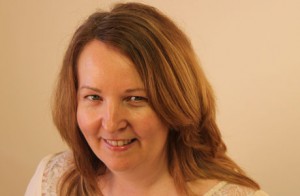I presented a session on Open Education at the Digital Leaders HE programme pilot in November. My colleague Helen Blanchett and I had collaborated on the session. Open Education covers a range of different areas such as open source, open standards, open knowledge and open data. I focussed on Open Educational Practice (OEP) whilst Helen focussed on Open Access.
I thought it was important to start the session by defining Open Educational Practice:
‘open education is not limited to just open educational resources. It also draws upon open technologies that facilitate collaborative, flexible learning and the open sharing of teaching practices that empower educators to benefit from the best ideas of their colleagues. It may also grow to include new approaches to assessment, accreditation and collaborative learning’. (Cape Town Open Education Declaration, 2008) Beetham, H., Falconer, I., McGill, L. and Littlejohn, A. Open practices: briefing paper. JISC, 2012 https://oersynth.pbworks.com/w/page/51668352/OpenPracticesBriefing
I wanted to highlight the many benefits of Open Educational Practice and referenced the work of the UKOER programme, and in particular the phase 3 synthesis reports which highlights the changes in teaching approaches and practices[1].
I thought it would be useful to highlight to delegates the work of Open Scotland, which was formed following an Open Scotland Summit in 2013. The aim of the event was to bring together senior managers and policy makers to collaborate and develop open education policies and practices. The main output of the summit was the Scottish Open Education Declaration which references the pioneering work taking place in Scottish education and the importance of widening access, contributing to social inclusion, and bridging the digital divide.
During discussions at the Digital Leaders session it became clear that there was a mix of participants’ levels of understanding and knowledge about Open Education, some participants were interested in gaining an understanding of what ‘Open’ means by asking about exemplars and case studies. Others were aware of the different flavours of ‘Open’ so their understanding related to their experience and context, whilst other participants had been involved in projects and are rolling out ‘Open’ initiatives at their institutions such as making courses Open.
I was keen to focus discussions on the role of the digital leader in Open Education and quoted an updated definition of Open Educational Practices:
“We think of Open Educational Practices as those educational practices that are concerned with and promote equity and openness. Our understanding of ‘open’ builds on the freedoms associated with “the 5 Rs” of OER, promoting a broader sense of open, emphasising social justice, and developing practices that open up opportunities for those distanced from education.”
http://oepscotland.org/about/definitions
I thought it was useful to highlight the emphasis on social justice and opening up opportunities in the quote. I also referenced the keynote Laura Czerniewicz gave at the ALT Conference earlier this year when she talked about the important role policies and advocacy has in addressing inequality and inclusion.
The opportunity for in depth discussion during my session at the Digital Leaders programme was limited due to time constraints however some questions digital leaders might want to consider about Open Education are listed below:
- Are you aware of Open Education initiatives and practices?
- What are the drivers and issues within your organisation?
- Do you have policies in place?
- Are policies enough?
- A separate policy or embed in existing policies?
- How do you balance institutional / community drivers?
- “The greatest potential benefits are communal rather than tied to the competitive advantage of individuals or institutions. “ (Jisc Open Practices briefing paper)
- What do you think the role of digital leader is in this landscape?
[1] McGill, L., Falconer, I., Littlejohn, A. and Beetham, H. JISC/HE Academy OER Programme: Phase 3 Synthesis and Evaluation Report. JISC, February 2013 https://oersynth.pbworks.com/w/page/59707964/ukoer3FinalSynthesisReport

